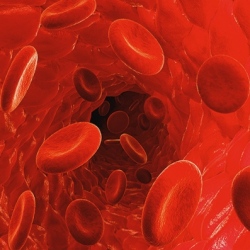
Scientists have taken a step towards one of the biggest goals in medicine – a universal blood test for cancer. A team at Johns Hopkins University has trialled a method that detects eight common forms of the disease. Their vision is an annual test designed to catch cancer early and save lives. UK experts said it was "enormously exciting".
However, one said more work was needed to assess the test’s effectiveness at detecting early-stage cancers. Tumours release tiny traces of their mutated DNA and proteins they make into the bloodstream. The CancerSEEK test looks for mutations in 16 genes that regularly arise in cancer and eight proteins that are often released.
It was trialled on 1,005 patients with cancers in the ovary, liver, stomach, pancreas, oesophagus, colon, lung or breast that had not yet spread to other tissues.
Overall, the test found 70% of the cancers. Dr Cristian Tomasetti, from Johns Hopkins University School of Medicine, told the BBC: "This field of early detection is critical.
"I think this can have an enormous impact on cancer mortality."
The earlier a cancer is found, the greater the chance of being able to treat it. Five of the eight cancers investigated have no screening programmes for early detection. In some cases, the test also provided information about the tissue-of-origin of the cancer – but not all.
Pancreatic cancer has so few symptoms and is detected so late that four in five patients die in the year they are diagnosed.
Finding tumours when they could still be surgically removed would be "a night and day difference" for survival, said Dr Tomasetti.
CancerSEEK is now being trialled in people who have not been diagnosed with cancer, which will be the real test of its usefulness.
The hope is it can complement other screening tools such as mammograms for breast cancer and colonoscopies for colorectal cancer.
Dr Tomasetti said: "We envision a blood test we could use once a year."
